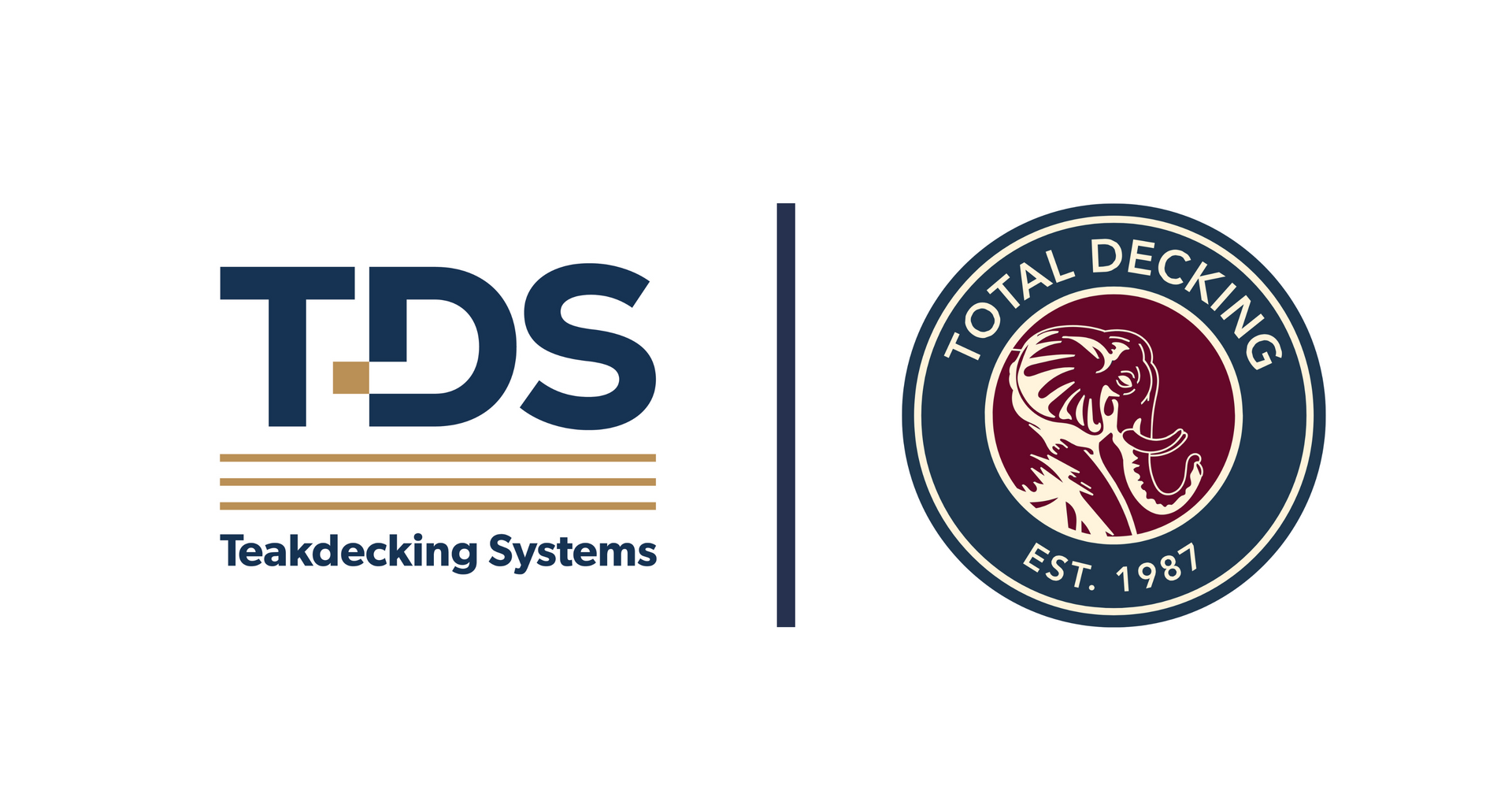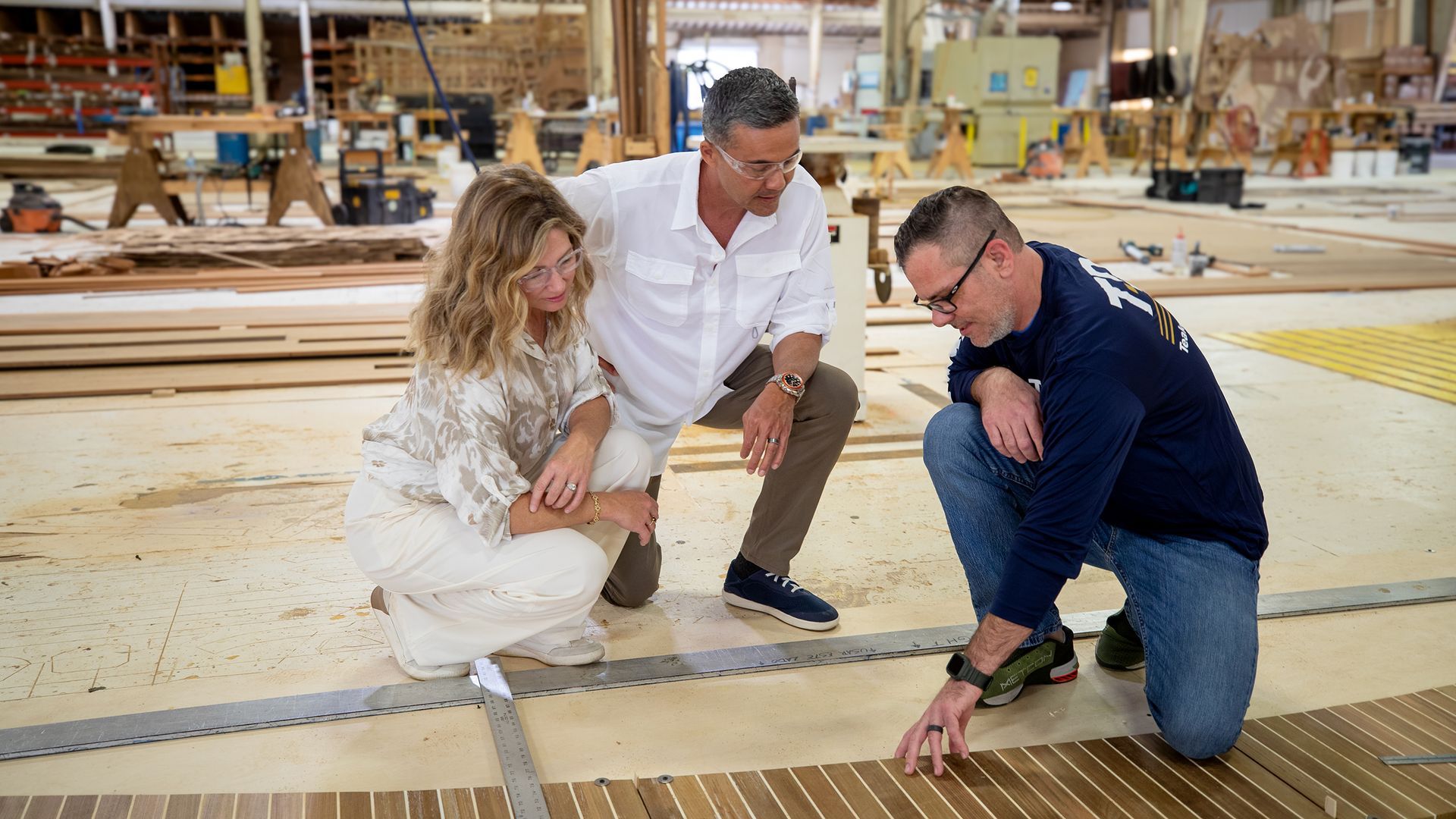LEARNING CENTER
Discover expert resources, guides, tips, and the latest news.
COMPOSITE DECKS

We are thrilled to announce our partnership with Matt Graham and Total Decking to expand our presence in key U.S. markets. This collaboration is focused on delivering high-quality decks to boats in the 20-150 foot range, in Maine, Newport/Southern New England, and Chesapeake. Matt Graham, owner of Total Decking, brings a wealth of experience to the partnership. With a background in both business and marine craftsmanship, Matt has worked in boatyards since the age of 14, later serving as Chief Operating Officer of Lyman-Morse Boatbuilding for eight years. A dedicated offshore sailor and skilled carpenter, Matt's experience ensures that Total Decking delivers top-tier deck installations tailored to TDS standards. Total Decking was originally founded by Larry Murray in 1987 to serve TDS clients in the New England market. Over the years, the company has completed hundreds of successful installations across a wide range of vessels from classic cruising yachts to modern race boats. Under Matt’s leadership, Total Decking has expanded its territory to Southern New England and the Chesapeake Bay region, recognizing strong growth opportunities in the area where he grew up. Partnering with TDS allows us to provide even better service and extend our reach into key maritime hubs," said Matt . "With our dedicated team, we aim to be the most efficient and highest-quality solution for TDS installations. We understand the challenges boat owners and builders face when it comes to decking, and we are committed to offering precision, durability, and the highest level of craftsmanship. Our focus is on long-term customer satisfaction, and we are excited to bring these high-quality decks to a wider market ." Total Decking currently operates with a five-person team, each member deeply rooted in the marine industry . Alongside Matt, key team members include Phil Huening, a 15-year veteran of TDS installations; Miles Mancini, a naval architect with a degree from Southampton University, Sam Lloyd, a seasoned marine professional and avid racer, and Rory Rowe, a skilled craftsman with a background in high end tiny home construction. Richard Strauss, CEO of TDS commented “We are excited to join forces with Matt Graham and Total Decking. Their expertise, and dedication, align perfectly with our mission to provide the best decking solutions in the industry. This collaboration will strengthen our ability to serve customers in these key markets and uphold the high standards TDS is known globally for. ”

When it comes to selecting a company for your new deck, transparency and trust are essential. While we at Teakdecking Systems believe in the superior quality and craftsmanship of our decks, we also understand that we are not the cheapest option. While cost is an important factor, it’s equally crucial to consider the long-term value and durability of your investment. If you decide not to entrust us with your new deck, we strongly encourage you to do your due diligence and ask the right questions before committing. Our top priority is ensuring you make an informed decision, no matter whom you choose to work with. A new deck is a significant investment and balancing cost with quality and durability is key to avoiding costly mistakes down the line. To help you navigate this process, here are six crucial considerations to guide your decision-making process: 1. Research the Company’s Reputation The first step in evaluating a decking company is to research its reputation. A quick online search can provide valuable insights into their track record through reviews, ratings, and testimonials from fellow yacht owners. Social media groups, forums, and word-of-mouth recommendations are also great sources of information. Pay close attention to any recurring themes in feedback—positive or negative—as they often reveal the company’s strengths or potential red flags. 2. Understand the Quality of the Teak Not all teak is created equal. High-quality, seasoned old-growth teak is far superior to plantation or fast-growing teak. Old-growth teak has tighter growth rings, which make it denser, less permeable, and significantly more durable. Plantation teak, while more readily available, lacks these qualities and may not hold up as well in the long term. Knowing what kind of material you’re putting on your yacht will ensure you make a well-informed investment. 3. Verify the Legality and Availability of Materials Legal sourcing of teak is not only an ethical concern but also impacts project timelines. Some companies may not stock the teak they use, instead purchasing it only when an order is placed. This could lead to delays, particularly if the company encounters sourcing challenges. Ensure the company you choose has legal teak readily available in their possession. This not only guarantees compliance with international laws but also reduces the likelihood of unforeseen delays in your project. 4. Compare Decking Materials While teak is a popular choice for yacht decking, there are alternatives like EVA foam, PVC, Polyurethane, and cork that you may consider. Each material has its own pros and cons in terms of cost, durability, and appearance. For instance, EVA foam is lightweight and budget-friendly but lacks the longevity of teak, while PVC and Polyurethane offer varying levels of durability and cost-effectiveness. Carefully evaluate these options and discuss them with the company to determine the best fit for your needs and budget. 5. Review Past Projects and Current Workloa d A company’s previous work speaks volumes about its capabilities and standards. Request to see examples of past projects, ideally ones similar to your vessel, to gauge their expertise. Additionally, inquire about their current workload. If a company is overbooked, your project could face delays, leaving your boat out of commission longer than expected. Asking for a clear manufacturing and installation timeline can help you set realistic expectations and plan accordingly. 6. Select a Reputable Yard Where the work is performed is just as important as who performs it. Opt for a reputable yard that has experience handling yacht projects. A good yard can coordinate with subcontractors, enabling multiple tasks to be completed simultaneously, which saves time and ensures a smoother process overall. Effective project management is crucial in these situations, so ensure the yard has a proven track record of handling yacht renovations. 7. Warranty & Service When evaluating decking companies, it is important to check if they offer a warranty and ask detailed questions about its coverage. Does it cover both materials and installation? What is the duration, and are there any conditions or exclusions? Clarify where warranty work will be carried out and any associated costs, such as transport, subsistence, lodging, and logistics required for repairs. 8. Global Service For yacht owners constantly on the move, choosing a company with reliable global support is essential. Evaluate the company's operational reach and its ability to respond and travel to your vessel if needed. For total peace of mind, TDS decks are covered by a worldwide warranty, ensuring customers receive top-tier service and support wherever they are. Final Thoughts Choosing the right company for your yacht’s decking is a decision that shouldn’t be taken lightly. Transparency, reputation, and quality should be your top priorities when evaluating potential companies. By asking the right questions and thoroughly researching your options, you avoid costly mistakes and ensure your deck meets your expectations in both quality and longevity. While cost is always a factor, remember that value is about more than just the upfront price, it’s about the durability, craftsmanship, and long-term performance of your deck. A well-informed decision will not only protect your investment but also enhance your enjoyment of your yacht for years to come.

Marilyn DeMartini , Guest Writer … Teak is the marine industry “gold standard” for flooring and cabinetry. However, technology and material improvements in composite materials are causing builders and informed customers to look at these teak-alternatives. The numerous “faux teak” materials on the market include EVA, PVC, and polyurethane. Considered an authority, Teakdecking Systems can eliminate confusion by explaining these material differences and offering their preferred product.

Once a boat owner decides to add or replace a boat deck (in teak or composite), one of the first questions asked is: “Where do you do the deck installation?” The answer may be nearer than expected. (Spoiler Alert: The boat doesn’t have to be at Teakdecking Systems’ Florida or European facility.) MODULAR DECKING Teakdecking Systems creates modular decking in sections sized to fit in available transport. Decks longer than the interior length of a standard 40-foot shipping trailer or container are assembled as interlocking sections. So, panels small enough to fit in the transport and be easily handled by the installation crew within the vessel and shipyards’ confines.


